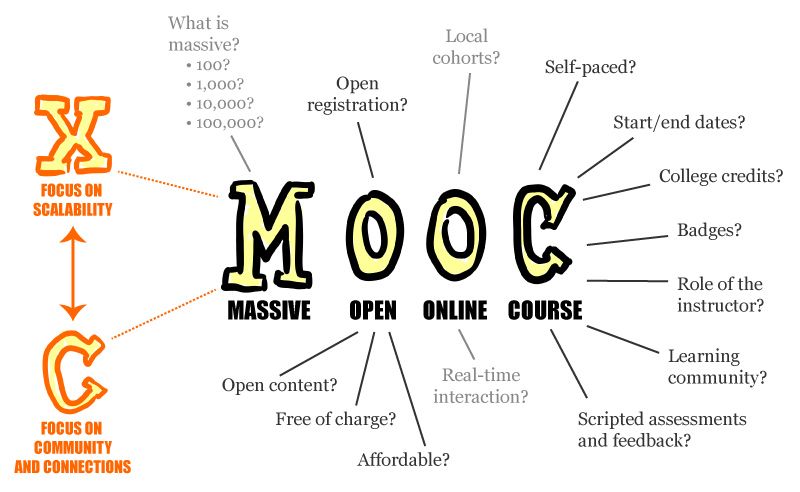MOOCs: For those unaware with the term it stands for “Massive Open Online Courses.” Some colleges and universities have began to offer them while other schools are looking for ways to combat them. I personally disagree with the idea of MOOCs and think they shouldn’t be counted for credit.
MOOCs originated in 2008 with one of the first classes being offered at the University of Manitoba. The idea behind it is quite simple. Learners take MOOCs for no charge and learn the same content as one sitting in the class (and paying for it as well) would. MOOCs have caused quite the discussion in recent years and The New York Times even deemed 2012 as “Year of The MOOC.”
For me, MOOCs are a big no-no for a variety of reasons but if I had to pick, the top three reasons would be quality of education, lack of transparency/consistency and overall formality.
Nowadays, when it comes to choosing which college to attend a big question admissions staff get is about the quality of the education. Whether it be a small school with one-on-one support or a big school with jam-packed lecture halls, it really is an important question. Will students get the same quality and support they need in a MOOC or will they get credit for just turning on the computer and watching the lecture. For some MOOCs are the way to go because they aren’t spending money and most likely won’t bother to try in the class. On the other hand, some rely on the MOOC as a means of financial reasons and treat the class as a gift. No matter what side of the table you are on, it is certain that you will not get the same experiences that you would sitting in a classroom.
The second reason I disagree with MOOCs is because of the lack of transparency and consistency. How would one feel if they were sitting in a lecture hall learning, paying and taking diligent notes and they had no idea the class was being offered online for free. If it was me I’d be pretty ticked. Also consistency would become a massive issue across the entire country. Would Cabrini College acknowledge credit for MOOCs or would Eastern strictly deny it? The education system would be majorly flawed and colleges would have no idea whether to accept the class or turn it away.
Lastly, and probably one of the most important concerns is the lack of formality. Would it be possible for somebody to obtain a degree entirely on MOOCs? If the answer would be yes, how would that play into the job market? Hiring processes would be completely different if decisions needed to be made between candidates who obtained a degree through MOOCs or those who went through another four years of formal education.
All in all, MOOCs would change the face of education forever although who knows if they will take off, never make it big or even plummet after a brief period of success. No matter what the outcome is for MOOCs I will always disagree with them.



